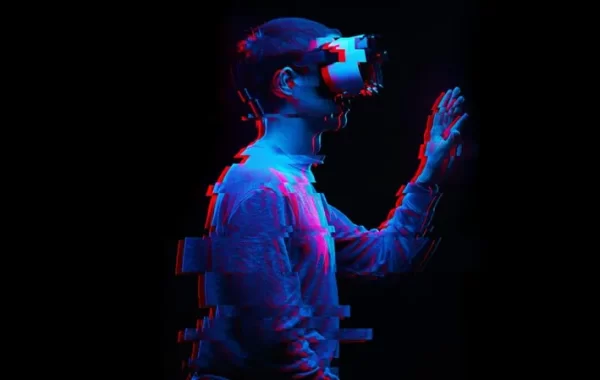The gaming industry is constantly evolving, and there are always new trends emerging that are shaping the future of the gaming world. In this article, we will explore some of the most exciting trends that are expected to have a major impact on gaming in the years to come.
1. Extended Reality (XR)
Extended reality (XR) encompasses a range of technologies that blur the lines between the real and virtual worlds, including virtual reality (VR), augmented reality (AR), and mixed reality (MR). XR is poised to revolutionize the gaming industry by creating immersive and interactive experiences that were previously unimaginable.

VR headsets, such as the Oculus Quest 3 and PlayStation VR2, transport players into completely virtual worlds where they can explore, interact with, and even manipulate objects. AR games, like Pokémon GO, overlay digital elements onto the real world, creating an augmented reality experience that blends virtual and physical environments. MR headsets, such as the Microsoft HoloLens 2, offer a more seamless integration of virtual and real elements, allowing users to interact with both simultaneously.
2. Metaverse Gaming
The metaverse is a virtual world that combines elements of social media, video games, and the internet. It has the potential to create a shared online space where people can interact, socialize, and play games together.

Several companies are already developing metaverse games, including Meta’s Horizon Worlds and Microsoft’s Mesh. These games offer players a chance to explore virtual worlds, customize their avatars, and interact with other players in a variety of ways.
3. Cloud Gaming
Cloud gaming allows players to stream games directly to their devices from remote servers. This means that players no longer need to have powerful gaming hardware in order to play demanding games. Cloud gaming also makes it possible to play games on multiple devices, including smartphones, tablets, and laptops.

Some of the most popular cloud gaming services include Google Stadia, Xbox Cloud Gaming, and PlayStation Now. These services offer a wide variety of games, from AAA titles to indie gems.
4. NFTs and Blockchain Gaming
Non-fungible tokens (NFTs) and blockchain technology are disrupting the gaming industry by introducing new ways to own and trade in-game assets. NFTs are unique digital tokens that can represent anything in the game, from virtual items to characters and even entire game worlds.

Blockchain technology allows players to store and manage their NFTs securely and transparently. This has the potential to create a more decentralized and equitable gaming ecosystem.
5. AI and Machine Learning
AI and machine learning are being used to create more intelligent and engaging gaming experiences. AI can be used to create more realistic NPCs, develop adaptive game difficulty, and even generate new content.

AI is also being used to improve game optimization and performance. This means that games will run smoother and be more responsive on a wider range of devices.
6. Cross-Platform and Cross-Gen Gaming
Cross-platform gaming allows players to play together even if they are using different consoles or devices. This is making it easier for players to connect with their friends and family no matter what platform they are on.

Cross-gen gaming allows players to play newer games on older consoles. This is important for ensuring that players who have not yet upgraded to the latest hardware can still enjoy the latest games, such as Overwatch 2.
7. Immersive Audio and Haptics
Immersive audio and haptics are making gaming experiences more realistic and engaging. Immersive audio uses surround sound and binaural audio to create a 3D soundscape that surrounds the player. Haptics use vibrations to simulate touch and force feedback, allowing players to feel the impact of their actions in the game.

As gaming technology continues to evolve, we can expect to see even more innovative and exciting trends emerge in the years to come. These trends will continue to shape the gaming industry and redefine the way we interact with games.
Conclusion
The gaming industry is undergoing a significant transformation with emerging trends shaping its future. Extended Reality (XR) is revolutionizing player immersion through VR, AR, and MR technologies. The metaverse concept is creating interconnected virtual spaces for social and gaming interactions. Cloud gaming is democratizing access by enabling gameplay across various devices without the need for high-end hardware. Innovations in NFTs and blockchain are redefining asset ownership and trading in games. AI and machine learning are enhancing gameplay and realism. Cross-platform and cross-gen gaming are promoting inclusivity, while advancements in immersive audio and haptics are amplifying sensory experiences. These trends collectively are forging a new era in gaming.

